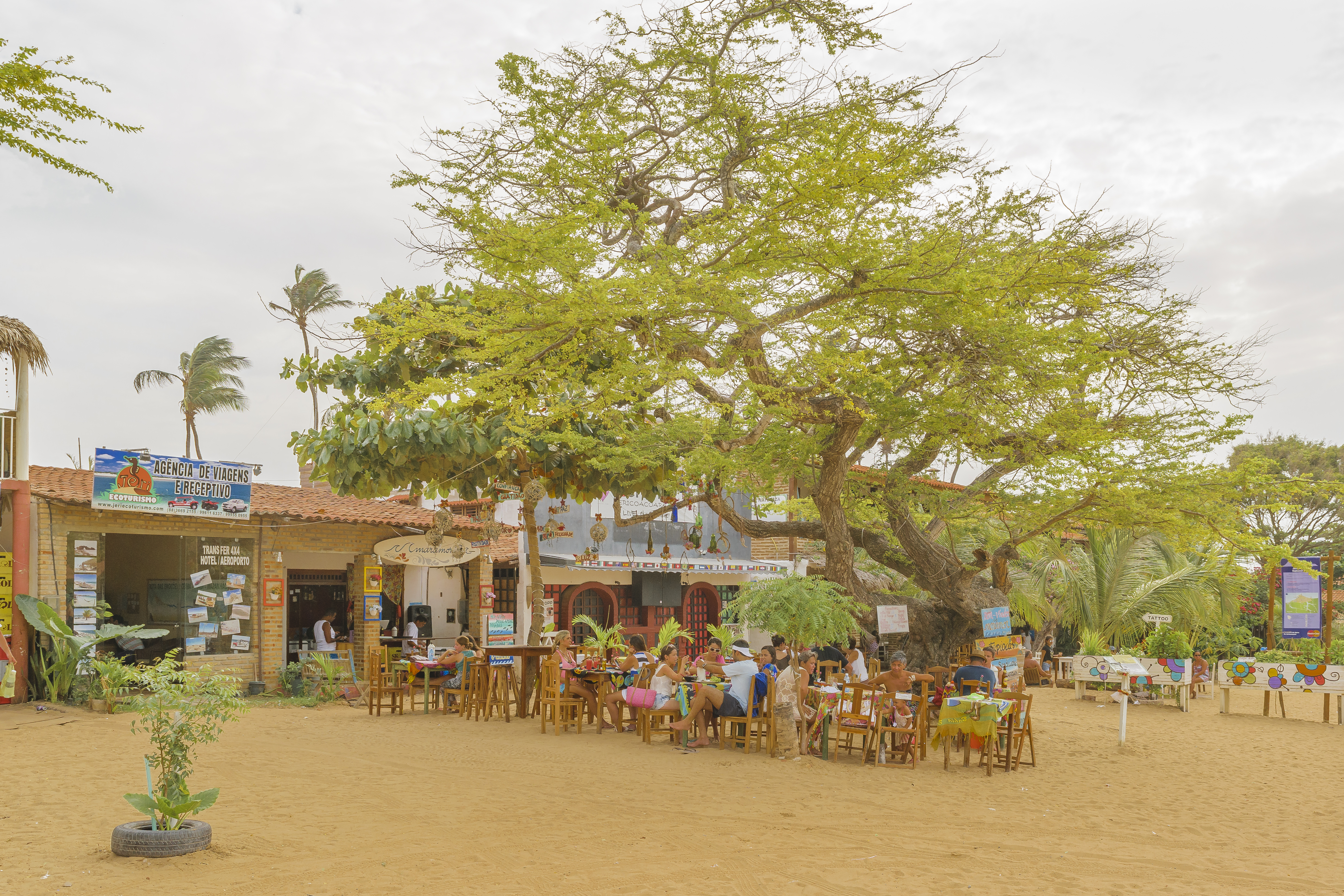Part of the Food Policy Snapshot Series
Food Policy: Popular Restaurants (People’s Restaurants)
Overview: The Popular Restaurant initiative was created by the Belo Horizonte city government and aims to end food insecurity among city residents. Popular Restaurants, or “People’s Restaurants,” are government-supported restaurants that offer cheap (1 USD or less), healthy and balanced meals made with local ingredients. They are open to all Belo Horizonte residents. To support local farms, the city government purchases Popular Restaurant ingredients from local family-farms at subsidized prices.
Food policy category: Social and Economic Equity; Food Security; Sustainable Agriculture
Location: Belo Horizonte, Brazil
- Population: 1.433 million (2010 UN data)
- The sixth largest city in Brazil; the third most populous metropolitan area in Brazil; capital of the second largest state in Brazil (Minas Gerais)
Program/Policy Initiated: 1994
- Administered by the Secretaria Municipal de Abastecimento, or SMAB (part of the Belo Horizonte city government).
- The first Popular Restaurant was established in 1943 by Juscelino Kubischeck, a previous Mayor of Belo Horizonte. After “Restaurante Juscelino” was closed in 1950, another Popular Restaurant was not opened until 1988. This restaurant went through multiple closures and reform before the 1994 policy initiative.
Progress to date:
- There are now four Popular Restaurants and one Popular Canteen (smaller and only serving breakfast and lunch)
- A sixth branch will open (soon) in 2016
- From 1994 to 2012, the number of meals sold by the Popular Restaurants increased sixteen-fold
Program goals:
- To end food insecurity in Belo Horizonte
- To increase access to healthy, local foods at subsidized prices for low-income people
- To encourage healthy eating habits among all Belo Horizonte residents
- To support local farmers by regularly purchasing their produce securing consistent sales despite market conditions; to stimulate diversified, organic agriculture and job creation
- To prevent food waste from farms with produce surpluses
- To destigmatize food assistance by creating an affordable and high-quality meal option that is appealing to all city residents
How it works:
- All Popular Restaurant sites are managed and administrated by the Belo Horizonte city government.
- Meals are planned by SMAB’s nutritionists and prepared by trained staff. At lunch, Popular Restaurants offer a meal of rice, beans, vegetables, salads, meat, juice and fruit; at dinner (a smaller meal in Brazil), it offers soup from beans, vegetable, manioc, chicken, or meat.
- Under the city law (Law 7.612/98-article o 2º), the price of a meal from a Popular Restaurant cannot exceed the unit cost (this includes the cost of its production and the maintenance and functioning of the restaurant).
- Average prices in the restaurants are: R$ 0.75 (0.20 USD) for breakfast; R$ 3 (0.81 USD) for lunch and R$ 1.50 (0.41 USD) for dinner (1 USD = approximately 3.5 Brazilian Real).
- Beneficiaries of “Bolsa Família”(Family Basket), a national assistance program for low-income families, receive 50% off of all meals at Popular Restaurants.
- Registered homeless people receive meals for free (making up 160,000 customers a year).
- Popular Restaurants are situated in busy areas (such as bus/train stations), low-income neighborhoods and areas identified as “food deserts” — the newest and largest restaurant was built in the region with the highest poverty indicators in 2009.
Why it is important:
- The Popular Restaurants promote the human right to food and the concept of ‘food with dignity.’
- By giving the image of a Brazilian pub (even offering live music on select nights), Popular Restaurants are universally accessible and used by all types of residents — preventing stigmatization of the poor.
- They create new channels of affordable access to healthy foods for low income people; they put cheap, nutritious foods in the poorest parts of the city.
- The program supports family agriculture, organic farming methods through government food purchases and selling incentives that prioritize local producers.
Evaluation:
- The Popular Restaurants serve, on average, 10,600 meals a day — almost 3 million meals a year
- Eighty-five percent of customers are low-income residents
- Since 1993, when this program and other food security initiatives were enacted, hunger in Belo Horizonte has been nearly eliminated
- The cost of the food security initiatives is less than 10 million USD per year, just 2 percent of the city’s annual budget
Learn more:
www.pbh.gov.br/segurancaalimentar
https://www.worldfuturecouncil.org/file/2016/01/WFC_2009_Future_Policy_Award.pdf
https://www.ryerson.ca/content/dam/foodsecurity/publications/articles/BeloHorizonte.pdf
Point of Contact: Marcelo Lana Franco, Secretariat for Food Security and Nutrition Assistance
Email: presidencia@emater.mg.gov.br
Similar practices: Other cities in Brazil are now attempting to replicate this program.
References:
- Town Hall of Belo Horizonte. (2016). Food and Nutrition. Retrieved April 1, 2016, from www.pbh.gov.br/segurancaalimentar
- Göpel, Maja. (2009). “Celebrating the Belo Horizonte Food Security Programme.” World Future Council, Hilmar Bee: Hamburg. Retrieved April 1, 2016, from https://www.worldfuturecouncil.org/file/2016/01/WFC_2009_Future_Policy_Award.pdf
- Rocha, C. & Lessa, Iara. (2009). Urban Governance for Food Security: The Alternative Food System in Belo Horizonte, Brazil. International Planning Studies, 14(4), 389-400.
- World Bank. (2005). Human Development Report. Washington D.C.
- UN Statistics Division. (2010). UN Data: Demographic Statistics. Retrieved April 1, 2016, from https://data.un.org/Data.aspx?q=population+brazil+cities&d=POP&f=tableCode%3A240%3BcountryCode%3A76&c=2,7,9,11,13,15,16,17&s=datum:desc&v=1


